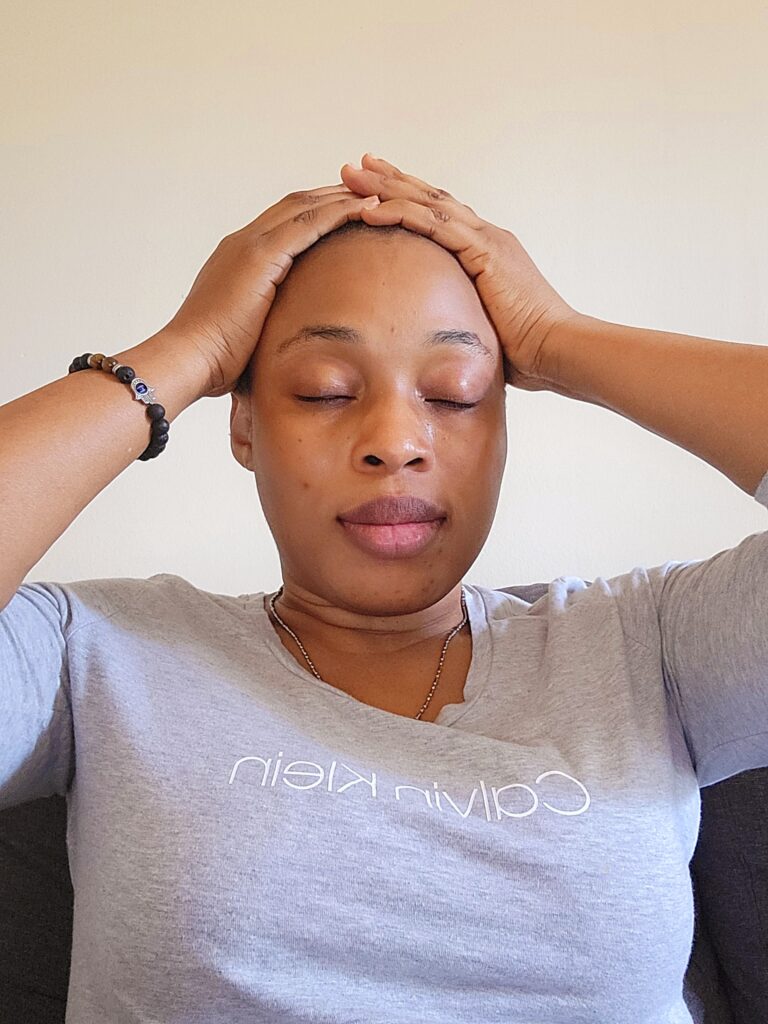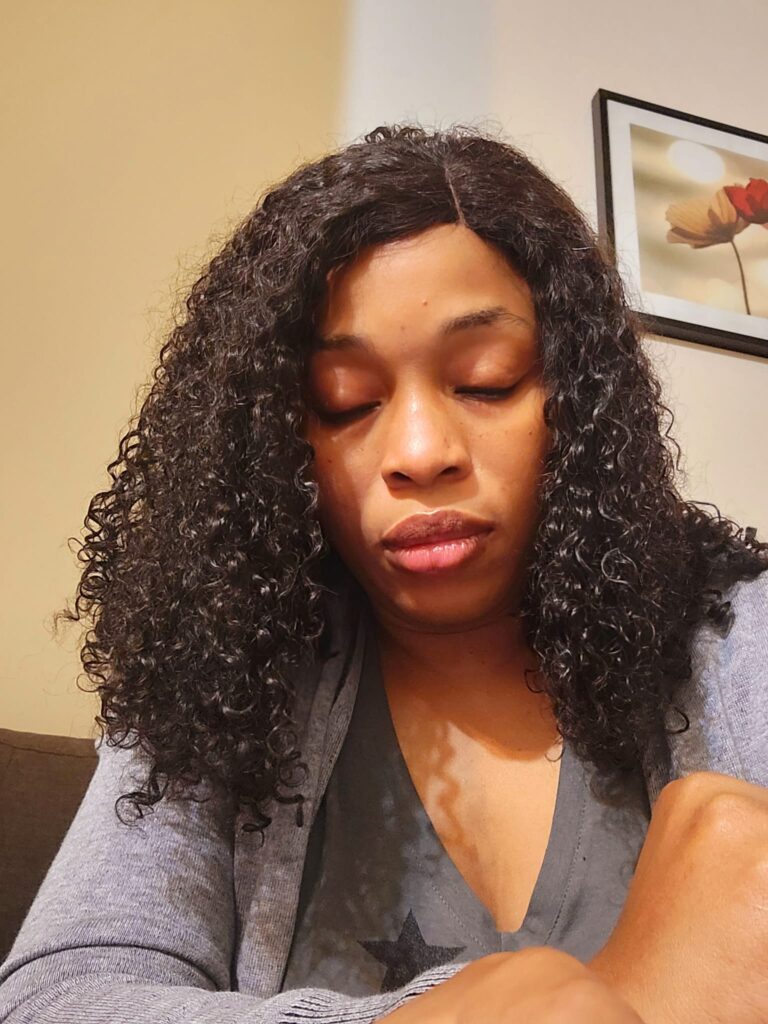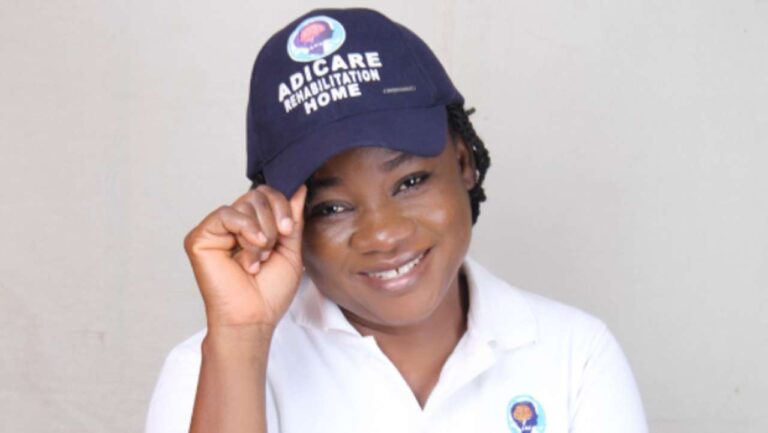Ezeh Veronica Ogochukwu is the Chief Psychiatric Matron in Yaba Psychiatric Hospital, Lagos and also the CEO of Adicare Rehabilitation Home. A native of Imo State, she’s proficient in multiple Nigerian languages, as she has lived in different parts of the country. In this Interview with Maria Diamond, she spoke about mental illness; the need to care for mentally ill persons and why depression should be taken seriously.
Where did the drive to help mentally ill persons come from?
As a child, I have always seen people stone the mentally ill persons on the street when they ask for food, and it pricked my heart. That motivated me to see what I could do to help them. So, I decided to study Nursing, and afterwards, I went for my specialty in Psychiatry at the School of Psychiatric Nursing, Aro Abeokuta. I did my Masters In Public Health at the College Of Medicine Ladoke Akintola University Oshogbo, and I graduated in 2016. I have been in Yaba Psychiatric Hospital since 1999.
Back then in the hospital, there used to be a Doctor, who used to pick mentally challenged patients on the street to Psychiatric hospital and I was among the young nurses on the team for the clearing service to pick patients on the street. We went as far as RCCG camp to pick patients and at the end of the day the hospital was able to reunite some of these patients with their families. That encouraged me and over time, I started helping people with mental illness on my own with what I have. I had the advantage of languages, as I was able to relate and communicate in different languages to each patient. Once you speak their language, they pay attention to you. Some of them even attempt to hug me and sometimes it really looks crazy on the street. I give them food and help them clean up if they agree.
At what point did you decide to set up Adicare Rehabilitation Home?
I had a child that had infantile cancer, Adikachukwu. We noticed he was running a severe temperature as early as three-months old but we didn’t come to diagnosis until he was 4-year old. When the case became so terminal, we searched for help; Lagos State Government intervened, and we travelled to India for treatment. On our way back on August 30, 2018, the boy died
A week before his death, he requested for a birthday gift as his birthday was approaching. He wanted a big celebration with a lot of people, but he died before his birthday. So, while mourning, I kept thinking what I could do to make his birthday relevant despite his demise, since it was his last wish. The inspiration came to me that celebration could come in different form, even if I channel resources into further helping the mental destitute by building a rehabilitation home for them since my interest lies in helping the mentally challenged. So, I registered the home with his name Adicare. Adicare Rehabilitation Home has advocacy section, social support section, counseling, rehabilitation seminar, health talk etc.
What is the target?
I look forward to seeing a society free of vagrant psychiatric patients. It is a dream; I long for it and hope to see a generation free of mentally ill people wandering the street. I cannot do it alone, but I believe it is possible because Lagos State has a centre and all they need to do is to create more centres. I remember picking a mentally ill patient who had a fracture on his feet on the street and I wanted to offer help and the hospitals denied me help. I took the patients to series of hospitals in Lagos and they denied him treatment.
At a stage I had to quietly leave the patient at the last Government Hospital in Gbagada and I walked away. I put up a petition and at the end of the day, Lagos State took the patient and he is at Majidun Rehabilitation Centre. So, really, if government wants to clear off all the mentally ill patients on the street, it is possible.
How do you think government can go about that?
They should sign a mental health bill because when the head is sick, every other part of the health is also in crisis. Also, there should be firmness on the issues of hard drugs and dealers especially amongst the youth in order to secure a safe future for them.
Are you in collaboration with other organisations on this cause?
I collaborate with the Association of Mentally Challenged persons such as World Mental Health Day, World Suicide Day, The youths, churches, and others in the community. In February 2020, we collaborated with Lagos Ministry of Education to create awareness on the causes and prevention of mental illness with focus on drug abuse. Because we see a lot of people on the street with hard drugs and we need to stop it from cradle before it goes out of hand. We picked age bracket 13-19, which falls in the category of Senior Secondary School.
We were allocated to Education District five, which comprises four Local Councils of Amuwo Odofin, Ojo, Ajeromi Ifelodun and Badagry. We covered all these within one month and we were able to attend to 60 Senior Secondary Schools. In every council, we have a centre where new students are brought in and we talk to them about causes of mental illness, preventions and the dangers of drug abuse. During this period, we were able to identify students who were already doing drugs. We discovered that some of them really didn’t want to do drugs, but got involved due to peer pressure; some due to family background, especially those in Ajeromi Ifelodun local council. Some are willing to quit drugs, but they don’t have the motivation. At the end of the day, most of the students agreed to form a group that fights against drugs but for the ravaging Coronavirus pandemic that has placed everything on hold.
Aside from hard drugs, what are the other causes of mental illness?
There are biological causes, psychological, environmental, genetics, depression, etc.
At what stage can depression lead to severe mental illness?
We have what we call reactive depression and endogenous depression. For reactive, patients react to situational crises, for instance, when you lose a job and you begin to withdraw and feel your life is over. However, with medication, you eventually get over it. Endogenous is just within; you can’t really tell what is causing it. It’s like a hormonal factor you can’t fathom how it came to be. No matter what you do, the person is never happy.
What are the major categories of depression?
There is homicidal, suicidal, manic, psychosis, others. Some have manic-depressive psychosis, which is a dual form of depression. A little to the lower side and the next second the person is up and excessive. It is a disorder associated with mood swings ranging from depressive lows to manic high
What do you think is responsible for the increase in depression in recent times?
In this era of coronavirus pandemic, many people have lost their jobs; many can no longer provide adequately for their family due to the downturn in the economy. I recently heard a father come up on national radio that the government should open school because his children are eating up all the food in the house. There are a lot issues, husbands can no longer take up responsibilities in the family, and some women are now going into prostitution just to make extra cash for the family.
What is the treatment procedure for depressed persons?
People should know the signs of depression, which includes being sad unnecessarily. Someone who used to be friendly suddenly becomes a sad person and withdraws from people, they start looking as though the entire burden of the world is on them. They begin to talk about ending their own lives because they don’t have reasons to keep living. So, to save the situation, it is important to see professionals; know what the person is going through before administering medication. In management of depression, medication is not the only solution; it goes hand in hand with psychological care.
What category would you place someone who commits homicide, depressed or mental illness?
The cases differ; most homicide cases are more anger issues than depression or even mental illness. Anger can be very suppressing; you let anger in and destruction kicks in. A man finds out his wife has been cheating on him, he gets extremely angry, loses his cool and control, and just kills her. Sometimes without the intention to kill, but in the moment of anger, he kills her anyway. So, except we really assess such murders we can’t exactly conclude that it’s a case of depression or mental illness.
How would you describe the mental condition of the elderly?
As human grow older, our organs start coming down. And for some, recaps of unfulfilled life events affects them and regret kicks in as they count their accomplishment. A lot of issues like loneliness become overwhelming and they begin to have dementia.
What is the future of the mentally challenged?
When they get better, we try to unite them with their families. But for those whose relatives can’t be tracked, they remain in the hospital and get into one or two occupation within the hospital to make money. They live and grow old in the hospital. We call them ‘alaanu’ patients meaning pity patients.
Do patients who live permanently in the hospital get involved in a marital relationship after treatment?
Yes, after treatment, some of them try to come together to marry, but we strictly discourage such relationships. When we see a male and female getting too close, we find a way to discourage it because there is every possibility that their mental illness is genetic, which can be replicated. So, if they get married, their offspring can inherit the illness.
Do you think we have enough mental health hospitals in Nigeria to meet up with the challenges?
In my years of experience in the psychiatric hospital here, I don’t think we’re doing badly at all. As a matter of fact, people bring back relatives outside the country with mental illness to our hospital here and they are always amazed at the rapidness at which these patients recover. The drug is universal. Aside from the drugs, our specialists in the field go extra miles to ensure that the root of the illness is addressed step by step and they recover. So, as a matter of fact, Nigeria has the universal best practice in the field.
How do you handle high-profile patients who worry about stigmatisation?
The management of mental illness has gone beyond stigmatisation with upgraded medications. Gone are the days when patients take medications and the effect makes them look dull and moron. Today, many high-profile persons are on mental medications and you won’t even know because of the transformation.
How do you source funds?
Presently, I have never been funded by anyone. It is self-funded, because of my passion and interest in the mentally challenged persons. However, I’m hoping that we get support from people, organisations, etc. in the future in order to further prevent mental illness in our society.












